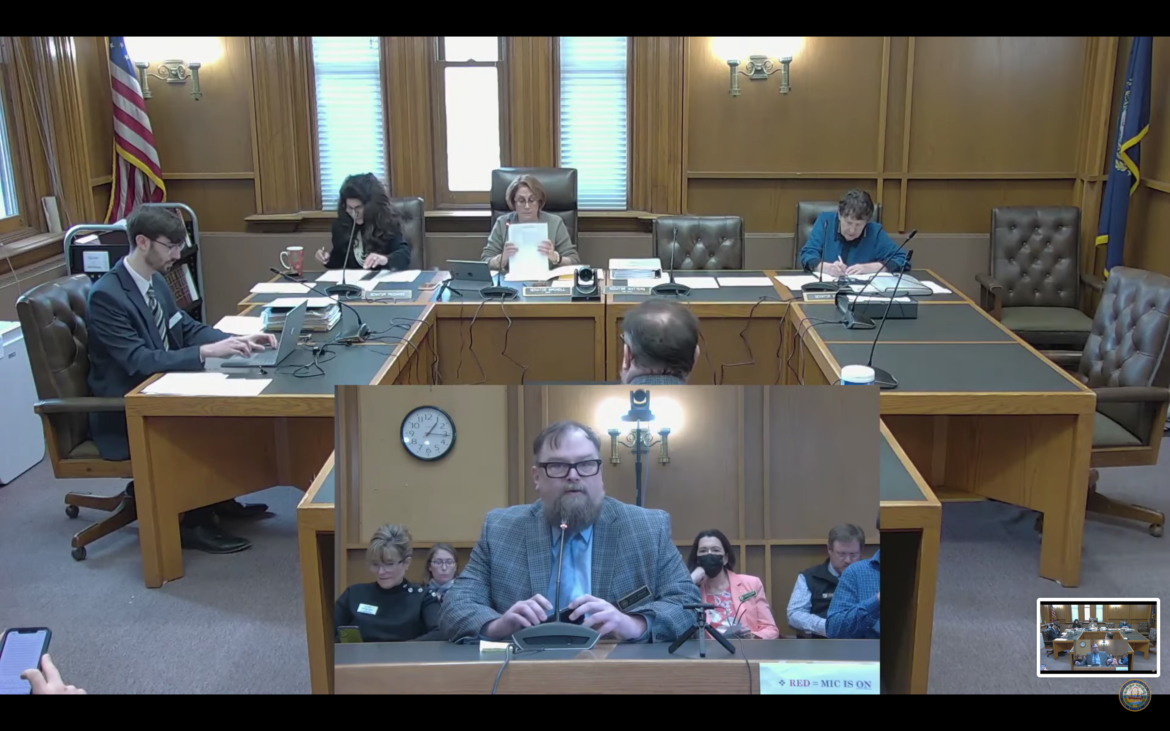By GARRY RAYNO, InDepthNH.org
CONCORD — The Senate Transportation Committee held a public hearing on a bill that could cost the state’s Highway Fund $200 million.
House Bill 1401, would prohibit the state Department of Safety or any vehicle inspection station from sharing a vehicle’s mileage with the federal government or another state.
The bill’s prime sponsor, Rep. Keith Ammon, R-New Boston, said the bill would not prohibit the state from considering a mileage fee, but would prevent the state from joining a pilot program included in the federal infrastructure bill that would track mileage.
“This would prevent a taxing scheme the federal government floated in the infrastructure bill,” Ammon said, “a national mileage tax at 8.5 cents per mile.”
He said the bill is a small effort to further the constitutional amendment passed several years ago protecting the privacy of an individual’s personal information.
The bill would not not allow the sharing of mileage information without the owner’s approval, he said.
Ammon said it would be much like the bill approved last year that prohibits the state from enforcing federally issued orders or laws on gun control.
Although he said he did not believe it would impact the federal highway funds coming to the state, others disagreed.
John Marasco, the director of the Division of Motor Vehicles, said the bill would violate the law for the national registration program that tracks commercial vehicles’ milage in different states.
He said the state receives about $200 million under the program, noting that is a lot more than the state’s commercial drivers have to pay other states for using their roads.
Without the money New Hampshire receives for out-of-state commercial vehicles using the state’s roads, the highway fund would be in deficit, Marasco said.
If his agency could not share the mileage information, they could not participate in the national program.
Agency officials said the larger companies have equipment that automatically tracks the mileage and where it is driven, but smaller companies track it manually.
Rep. Laura Telerski, D-Nashua, said the bill would hinder both the state and federal governments from finding a solution to the challenge of declining gas tax revenues due to greater mileage efficiency and alternative fuel vehicles.
She said House Bill 1040, to create a commission to study alternatives to the gas tax for highway system upkeep, has passed both the House and Senate and is on the way to the governor, who is expected to sign it
“This is a reactionary bill to an announcement of a federal pilot program that may or may not touch us in New Hampshire,” Telerski said. “That is not the best way to make policy.”
She said there is the concern that the bill could put federal highway funds in jeopardy, when a different approach with a look at all the alternatives is needed.
“Also this makes the tax voluntary,” she said, and “we all can figure out how that might go.”
The committee did not make an immediate recommendation on the bill.
Garry Rayno may be reached at garry.rayno@yahoo.com.





